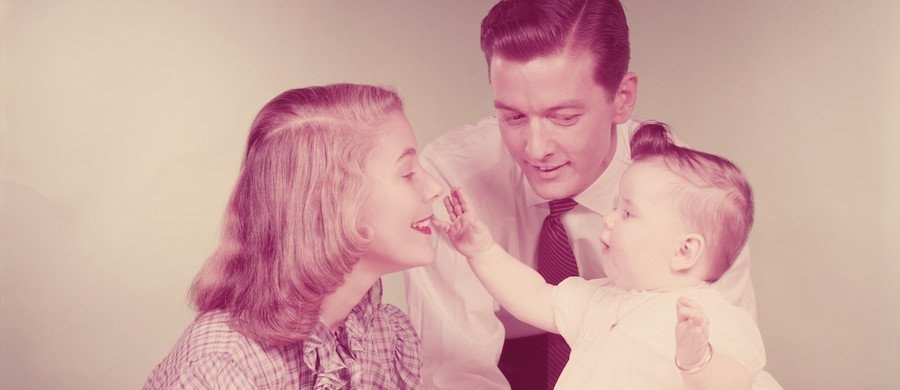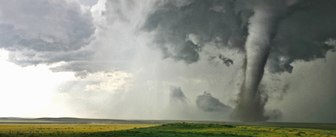Eight in 10 American adults grew up in a family with a mother and father, and those who did recall big differences in what each parent contributed to their upbringing. Most say that their mothers took on more household duties and were more involved in their daily upbringing, while their fathers were more likely to be the higher earners and strict parents. Although many adults say both of their parents were influential, more say their mothers played a bigger role in shaping moral and religious values, while fathers are more often seen as having played the bigger role in the development of political beliefs.
Nearly three-quarters of people who grew up in mother-father families say that their mother did more housework than their father. Americans' mothers are also more likely to have been involved in their daily activities and to have helped with homework growing up.
Seven in 10 adults raised in families with a mother and a father say their father was the higher earner. The vast majority — 87% — also say they got their last name from their father. In addition, fathers are more likely to be characterized as having been stricter than mothers.
Americans raised in families with a mother and a father are more likely to say they were closer to their mother (38%) growing up than to their father (16%). Many people — 39% — say they were equally close to both parents. Mothers also were many people's primary source of advice growing up, especially women. Men are more likely to say they turned to both parents equally for advice.
Many people raised by a mother and father say that both parents equally influenced their beliefs, including political, moral, and religious or spiritual beliefs. But among those who felt one parent was more influential than the other, more say their moral beliefs — as well as their religious or spiritual beliefs — were shaped primarily by their mother than by their father. Regarding their political beliefs, 37% say they weren't influenced by either parent, 30% by both equally, 23% more by their father, and 10% more by their mother.
The results suggest that how two-parent families divide certain responsibilities has changed over time. Among people 45 and older who grew up in families with a mother and father, 80% say their father earned more than their mother. Among people under 45 who grew up with a mother and a father, just 56% say their father out-earned their mother. The division of housework has also changed, though to a lesser extent: 79% of people 45+ say their mother was mostly responsible for housework, compared to 64% of adults under 45.
The assignment of surnames has also shifted slightly toward mothers or both parents passing on their last names, while remaining primarily the domain of fathers. 92% of people ages 45+ who were raised by a mother and father say they got their last name from their father, compared to just 80% of people under 45.
These questions were only asked of people raised in a family with both a mother and father, which excludes more than 20% of Americans. 14% say they were mostly raised by a single mother — who likely filled most or at least many of the roles asked about in this survey. 1% were raised by a single father, and 7% had a different family arrangement — including two mothers or two fathers. The results also do not reflect the division of roles among parents who are currently raising children, as only people who are adults were surveyed about their parents.
— Carl Bialik contributed to this article
See the results for this YouGov poll
Methodology: This poll was conducted online on April 25 - 28, 2024 among 1,000 U.S. adult citizens. Respondents were selected from YouGov’s opt-in panel using sample matching. A random sample (stratified by gender, age, race, education, geographic region, and voter registration) was selected from the 2019 American Community Survey. The sample was weighted according to gender, age, race, education, 2020 election turnout and presidential vote, baseline party identification, and current voter registration status. Demographic weighting targets come from the 2019 American Community Survey. Baseline party identification is the respondent’s most recent answer given prior to November 1, 2022, and is weighted to the estimated distribution at that time (33% Democratic, 31% Republican). The margin of error for the overall sample is approximately 4%.
Image: Getty














